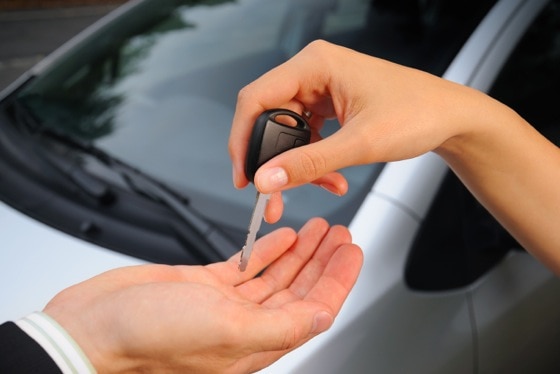If you don’t absolutely need the value of your used car to purchase another car, you might consider donating it rather than selling it or trading it in. When does it make sense for you to do that?
In this instance, we’re talking about donating a used car to charity rather than giving it to a teen or a friend in need. The assumption is that you desire some sort of nontraditional financial reward, such as a tax deduction.
If you don’t consider doing good to be more valuable than pure dollars and cents or you’re not desperate for a tax deduction, then it probably doesn’t make sense to donate.
Trading In Versus Donating
First of all, trading in certainly involves less effort and paperwork for you than selling your used car outright or donating it to charity. Yes, there may be some haggling involved to get what you want (or need) out of the trade-in, but once you’ve settled on the amount, your work is done. You will probably receive more cash from selling it outright than as a trade-in or donation, but selling requires some of your time and energy. Once a buyer is found and the deal is struck, however, you’re done.
Handing your used car’s keys in to a charity, on the other hand, is simply the first step in what can be a complex journey. IRS rules for claiming a deduction when donating a car to charity are anything but transparent. They are a murky collection of ifs, buts and can’ts.
“It’s so easy when it’s on a billboard,” said Dan Livengood, a Certified Public Accountant in Greenville, South Carolina. “Yeah, just bring it on over and get your tax deduction. But there are a lot of rules to follow and documentation required. You really have to dot your I’s and cross your T’s.”
Two qualifications that you must meet to donate are that the charity must have an IRS 501(c)(3) tax designation, and you must itemize your deductions instead of taking the standard deduction on your 1040 tax form. If you have any question about the organization’s charity status, ask to see its IRS documentation. Things only get more complicated from there.
If You Donate
If you’re determined to donate, the safest path is through a charity with lots of car-donation experience. It’s hopeful that it will be well versed in all the required paperwork, including sending you IRS Form 1098-C at year’s end to file with Form 8283 for noncash charitable donations.
If your car is basically scrap, you can deduct only the amount that the charity receives for it from the scrapyard. Your safest bet in this case is to claim some amount below $500, for which the IRS requires less documentation. If you’re questioned by the IRS, you’ll want to have a receipt. Usually, the charity will provide a receipt with its name on it, leaving you to fill in the blanks.
If the charity does anything with your car but scrap it, things really become complicated. The amount you can deduct depends on what the charity ultimately does with your car. Does it keep and use it? Does it sell the car as is? Does it fix it up and sell it? Does it sell it at market value or sell it to someone in need at a discounted amount? These and other factors affect the amount of your deduction, and they all require documentation.
What It Means to You
Unless your primary goal is to do some good, your life will be easier and you’ll probably see a better return from selling or trading in your used car.











It’s important to do your due diligence when donating to a charity. CarDonations4Cancer.org is an awesome one because it helps with prevention, screening, and treatment of Breast Cancer.